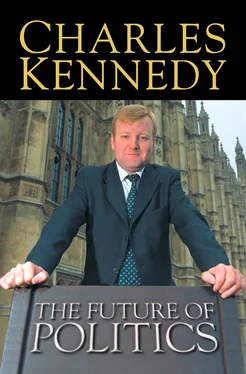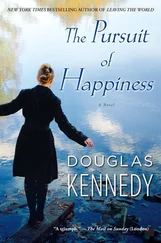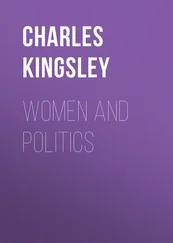In fact, they are still adamant about cutting income tax, because Labour believes this is the right way to win middle-income voters back from the Tories. This in turn means that, whatever Labour does for the most disadvantaged, it cannot do nearly enough to address the problems facing them. In 1997, journalist Nick Davies wrote:
Labour thinking seems to take no account of the damage which has been inflicted on the poor in the past twenty years … that by flicking the switches of the benefits machine … people can be manipulated into families or into work or out of crime, as though they were carefully calculating their rational self-interest, as though their lives and sometimes their personalities had not been scrambled by the experience of the last twenty years. 7 Конец ознакомительного фрагмента. Текст предоставлен ООО «ЛитРес». Прочитайте эту книгу целиком, купив полную легальную версию на ЛитРес. Безопасно оплатить книгу можно банковской картой Visa, MasterCard, Maestro, со счета мобильного телефона, с платежного терминала, в салоне МТС или Связной, через PayPal, WebMoney, Яндекс.Деньги, QIWI Кошелек, бонусными картами или другим удобным Вам способом.
His words are just as true now. And the solution is not simply to raise taxes and throw more money at the poorest sections of society. The solution requires as much of a revolution in thought as in deeds.
I have repeatedly stated that Liberal Democrats do not and will not inherit the vacant lot to the left of New Labour. Such a strategy would be tantamount to our party embarking on the search for a political cul-de-sac, but, at the same time, I believe that our party is the only party truly concerned with social justice, and we will fight the next election on that basis.
This is not a new stance for the party. Nor is it something I have chosen because it is fashionable – or unfashionable, for that matter. Far from it: Liberals and Social Democrats have a long tradition of fighting the war against social inequality. Some of the key thinkers of twentieth-century politics, who had a decisive impact on the shape of millions of people’s lives, were Liberals. William Beveridge produced the proposals for social security that became the bedrock of the post-war welfare state, and John Maynard Keynes was the economic guru of much of the post-war economic settlement. Before them, turn-of-the-century New Liberals such as L. T. Hobhouse and J. A. Hobson were among the first people in Britain to make a persuasive case for a government role in fighting poverty. We are and must always be the definitive political movement of conscience and reform.
Hobhouse’s view that ‘the struggle for liberty is … a struggle for equality’, is the basis of liberal attitudes to social justice. For all to be free, argued Hobhouse, there had to be equal access to opportunities for education and employment, and only individuals together, acting through government, could ensure that happened. Progressive social reform has deep philosophical roots within the Liberal Democrats.
It also has deep roots in Labour history, but the current leadership seems to have forgotten this. As a result, active public enthusiasm for New Labour (as opposed to national opinion polls) is at an all-time low. The desultory turnout for the 1999 European elections clearly indicated the nation’s deep cynicism towards the political process. At a time when war in Kosovo had been raging for seventy days, less than a quarter of the population found European politics sufficiently relevant to leave their houses and vote.
People only pay attention to politicians when they are dealing with issues that immediately concern them. From my travels across the country, I know that inequality is an issue of great contemporary concern, but the present government has all but stopped trying to redress it. It feels it is doing enough, because it can always churn out figures that prove it is. When one of its own ministers, Peter Kilfoyle, resigned from office because he felt that Labour was not doing enough for the poor in his own Liverpool constituency, the response from the leadership was an embarrassed silence. There was much talk about regretting his departure, not so much about regretting what he said – or whether it was true. 8 Конец ознакомительного фрагмента. Текст предоставлен ООО «ЛитРес». Прочитайте эту книгу целиком, купив полную легальную версию на ЛитРес. Безопасно оплатить книгу можно банковской картой Visa, MasterCard, Maestro, со счета мобильного телефона, с платежного терминала, в салоне МТС или Связной, через PayPal, WebMoney, Яндекс.Деньги, QIWI Кошелек, бонусными картами или другим удобным Вам способом.
One practical measure in particular would make a radical and immediate improvement, and put issues of inequality at the centre of political debate. Just as the Budget dominates the national news once a year, so we need an annual Social Justice Audit of similar importance, which would examine the impact of all government policies that have any link with social inequalities. It would be published in full in the newspapers and be publicized to the hilt, and every year the government would be expected to show whether they had met the targets of the previous year. This would, combined with an audit of their environmental performance, and the traditional Budget, establish a ‘triple bottom line’. The government is already encouraging ethical companies to report upon these aspects of their yearly performance; maybe it should learn the lesson itself.
Such an audit would have to be genuinely independent of government, and carry significant weight behind its conclusions. A variety of bodies would be consulted in its creation, and a panel of respected independent figures would be established. It would include representatives of, for example, the Economic and Social Research Council, the Bank of England, the CBI, the BMA, the National Audit Office and the Audit Commission. Not all of these bodies are primarily associated with the cause of social justice, and so they would not be seen as having axes to grind, but they could all provide significant expertise at evaluating evidence produced by government departments. In addition, they would be supported by a permanent team of researchers, independent of any government department, whose job would be to examine the figures produced by government. With such support, finding any inaccuracies in government figures would not be difficult – as Liberal Democrat researchers regularly prove even without such support. This would be an enormous improvement upon the government’s present self-congratulatory Annual Report, an exercise which ranges from the anodyne to a brazen attempt at political propaganda at the taxpayers’ expense. Mercifully, nobody appears to pay much attention to it.
What would this audit look like in practice? It would begin with the announcement of Bills in Parliament. Take some of those put forward by the government in the final Queen’s Speech of the last century, November 1999. The audit would apply two key questions to them. First, how would different parts of the country, and the inequalities between them, be affected? Second, how would the inequalities between social groups be affected?
Читать дальше












